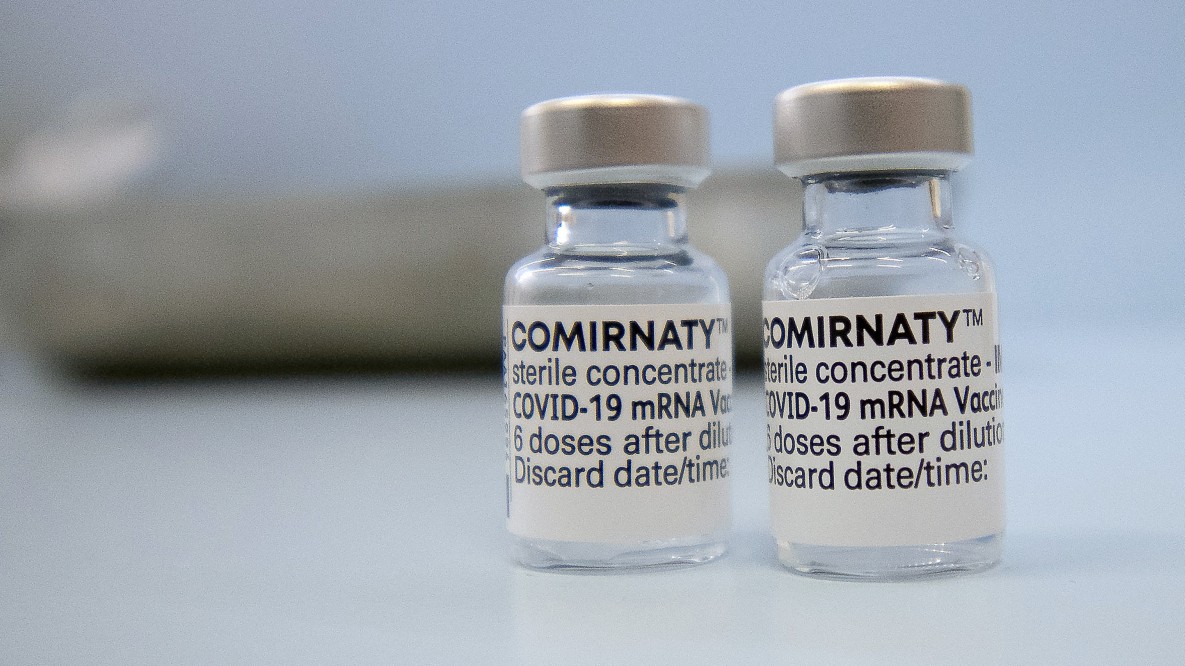The risk is increased, but the benefit is much greater. This is the quintessence of the US health authority CDC on the Covid vaccination of young people. Their vaccination commission ACIP dealt on Wednesday with the cases of myocarditis (myocarditis) and pericarditis after the corona vaccination with an mRNA vaccine.
The conclusion: Apparently vaccination with one of the mRNA vaccines from Biontech or Moderna favors the occurrence of myocarditis, as the first data from Israel had already shown at the end of April. In Germany, too, individual vaccinated people had reported this problem. According to the CDC data, 128 cases of myo- or pericarditis occurred among the two million twelve to 17-year-old boys who were vaccinated with one of the mRNA vaccines in the USA; two cases would have been normal. Among the 4.3 million men between the ages of 18 and 24 who were vaccinated, there were 219 instead of the four to five expected cases. The risk was less increased for men between 25 and 49 years of age and for young women between 12 and 24 years of age.
Thus, among the twelve to 17-year-old male teenagers, an inflammation of the heart muscle occurred for every 16,000 vaccine doses; for men aged 18 to 24, one for every 20,000 doses, for men between 25 and 49 years of age one for 133,000 doses, and for girls between the ages of twelve and 17, one for 115,000 doses.
The reason for the more common heart problems after vaccination is not yet clear
But the cases were usually mild, according to the CDC. The benefit of the vaccination therefore exceeds the risk many times over for young people, concluded the authority, which continues to expressly recommend vaccination from the age of 12. While a million second vaccinations in male teenagers between the ages of twelve and 17 cause around 56 to 69 myocarditis, they would prevent 215 hospital admissions, 71 treatments in the intensive care unit and two deaths from Covid-19 at the same time. “The risk-benefit ratio shows a positive balance for all ages and genders,” said the CDC.
Nevertheless, the vaccines are to be provided with a warning, as an employee of the US FDA announced during the meeting. Vaccinated persons and their parents should be alerted if young people experience chest pain, shortness of breath, or a feeling that the heart is beating faster, erratic, or occasionally skipping.
The mechanism by which myocarditis occurs after mRNA vaccination is unclear. Infections can also lead to inflammation of the heart muscle; they are also a complication after being infected with Sars-CoV-2. It is assumed that the viruses, like the vaccination, can under certain circumstances lead to an excessive immune reaction that attacks the heart. Young people with their particularly active immune systems could therefore be more at risk.
Since most of the observed cases of myo- and pericarditis only occurred after the second dose of vaccination, people in Israel are considering leaving out the second syringe in teenagers. Researchers led by Nadav Davidovitch from Ben Gurion University in the Negev have re-analyzed the approval data for the Biontech vaccine and found that twelve to 15-year-olds are very well protected from Covid-19 just two weeks after the first dose. In the study, none of the teenagers became infected with Sars-CoV-2.
The second injection increases the immunogenicity of the vaccination in this age group “little, if at all,” said Davidovitch Jerusalem Post, the immune protection against Covid-19 hardly increases with the second vaccination dose. Therefore, in view of the increased risk of myocarditis, it might be better to do without the second vaccination, said the epidemiologist, who belongs to the Israeli government’s Covid-19 advisory team – even if the risk of myocarditis is low overall. However, the delta variant could thwart this strategy. At least adults are hardly protected from Delta after just one vaccination.
Editor’s note: In an earlier version it was said that according to the study, young people were already 100 percent protected by the first vaccination. This formulation is wrong. It is correct: among the vaccinated 12 to 15 year olds in the study there were no more cases of infection from the third week after the first vaccination, which arithmetically results in an effectiveness of the first vaccination of 100 percent. It was also specified that Nadav Davidovitch spoke of immunogenicity and not immune protection. Immunogenicity is the property of the vaccine to trigger an immune response and thus leads to immune protection.
ch only one vaccination hardly protected from Delta.
Ricardo is a renowned author and journalist, known for his exceptional writing on top-news stories. He currently works as a writer at the 247 News Agency, where he is known for his ability to deliver breaking news and insightful analysis on the most pressing issues of the day.












